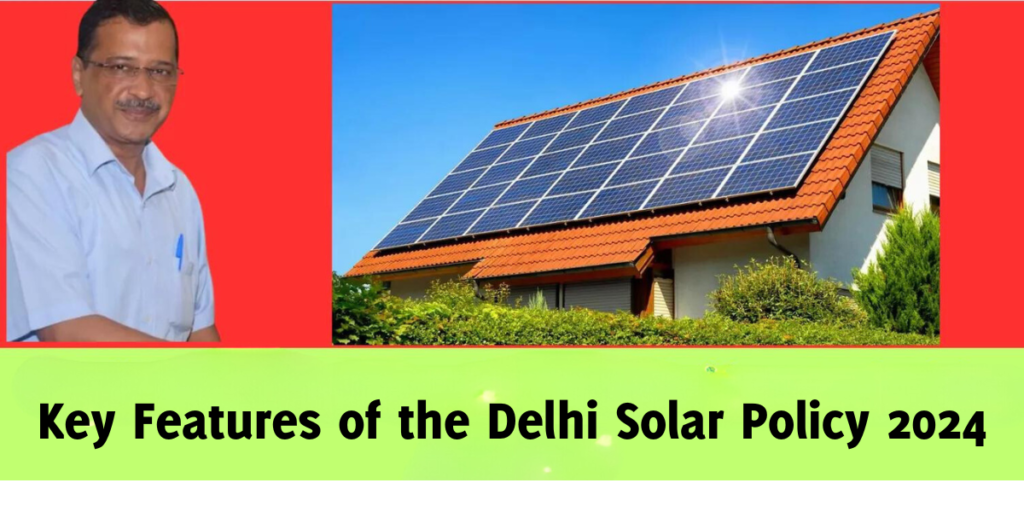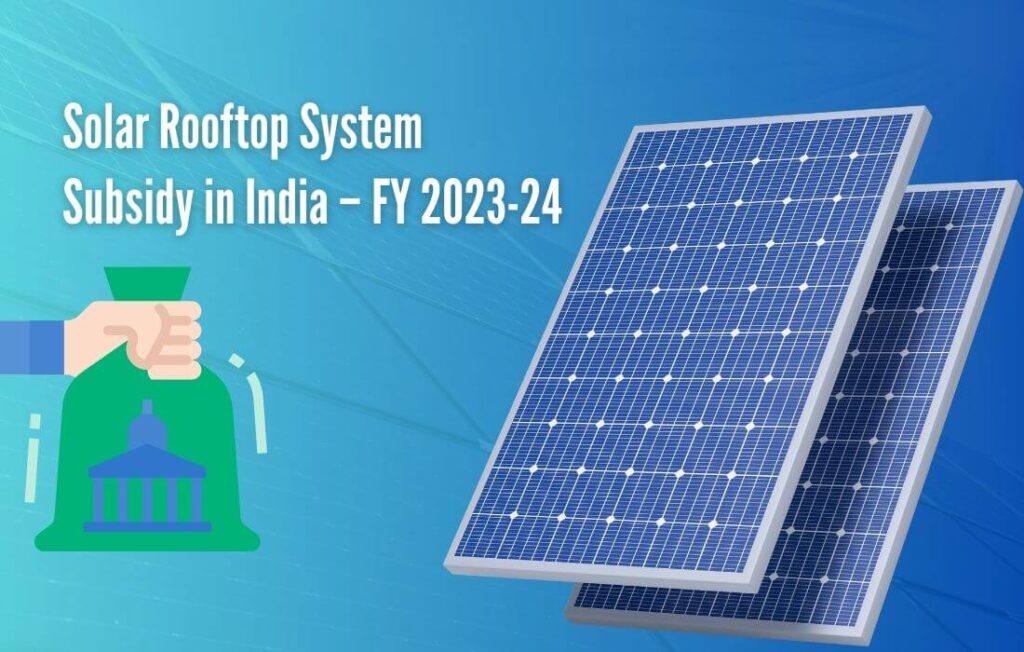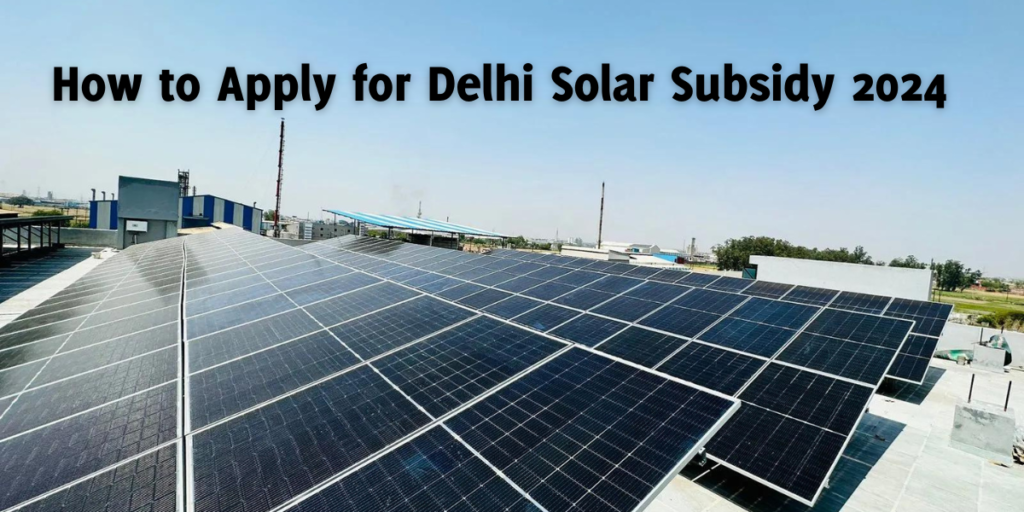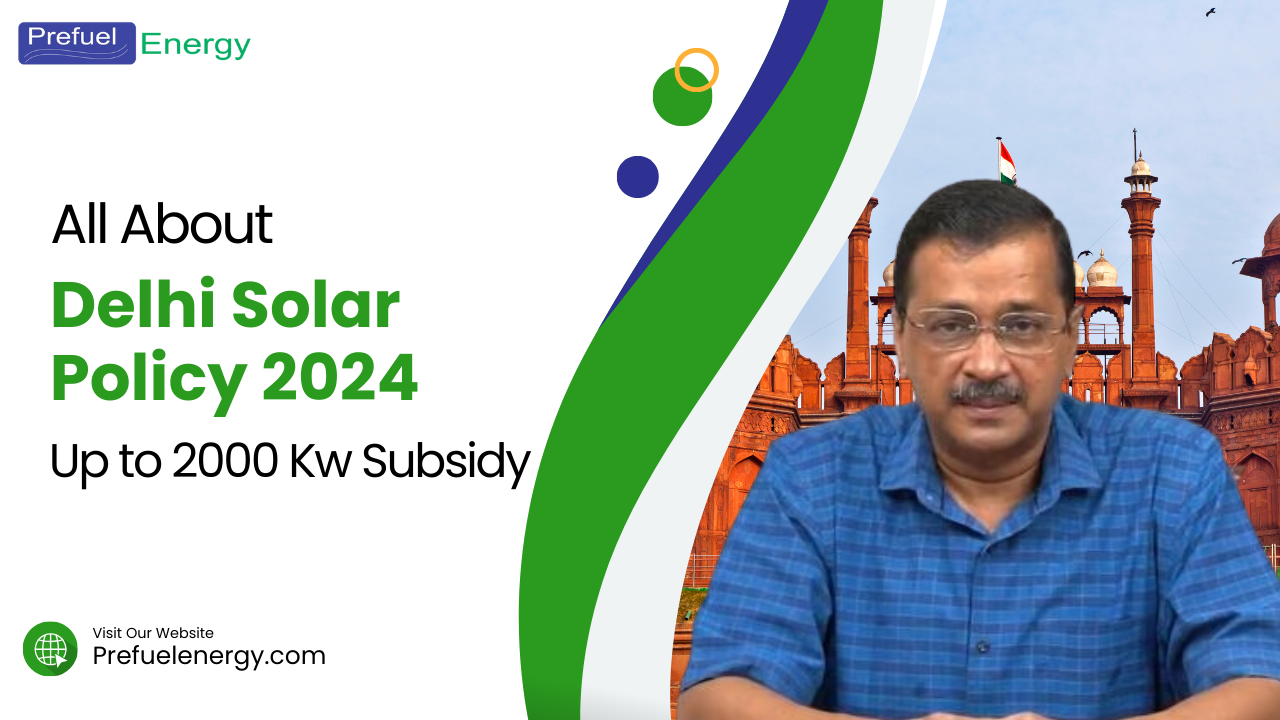The Delhi government recently released its Solar Policy for 2024, laying out an ambitious vision for expanded solar energy adoption across the state. The policy aims to establish Delhi as a leading state in solar energy usage, minimize electricity costs, provide clean energy access to all consumers, and generate new green jobs.
- Announced by Delhi Chief Minister Arvind Kejriwal on January 30, 2024.
- Aims to promote installation of rooftop solar panels in homes and buildings in Delhi.
- Replaces the previous 2016 solar policy.
The Delhi Solar Policy 2024, announced by Chief Minister Arvind Kejriwal, introduces a significant shift towards promoting the use of solar energy among residents of Delhi. This policy aims to encourage the installation of rooftop solar panels, offering financial incentives and the potential for consumers to achieve zero electricity bills.
Key Features of the Delhi Solar Policy 2024

- Zero Electricity Bills: Residents who install rooftop solar panels can potentially eliminate their electricity bills entirely. This is made possible through the generation of solar power, which can be adjusted against the consumer’s electricity consumption through net metering.
- Financial Incentives: The policy offers a generation-based incentive (GBI) for the solar power generated. Consumers will be paid Rs 3 per unit for solar plants up to 3 kilowatts and Rs 2 per unit for larger installations. This incentive is designed to encourage more residents to adopt solar energy by making it financially attractive.
- Monthly Earnings: Apart from reducing or eliminating electricity bills, participants in the scheme can also expect to earn approximately Rs 700-900 per month from the power they generate. This adds an additional financial benefit to adopting solar energy.
- No Minimum Generation Requirement: Unlike the previous solar policy of 2016, which required a minimum generation of 1,000 units to qualify for incentives, the 2024 policy removes this conditionality. This makes it easier for more residents to benefit from the policy.
- Installation Process: To get solar panels installed under the new policy, residents need to check the authorized vendor list on the government website, choose a vendor, and proceed with the installation. The government will soon publish a list of authorized vendors to facilitate this process.
- Impact on Solar Capacity: The policy aims to significantly increase the installed capacity of rooftop solar panels in Delhi. While specific targets are not mentioned in the provided sources, the emphasis is on making solar energy a cornerstone of Delhi’s energy strategy.
Apply Now For Delhi Solar Policy 2024
Comparison with the 2016 Policy
The Delhi Solar Policy 2024 is designed to address the limitations of the 2016 policy by making solar energy more accessible and financially attractive to a broader segment of the population. The removal of the minimum generation requirement and the introduction of a more generous incentive structure are key improvements aimed at accelerating the adoption of solar energy in the capital.
Benefits of Delhi Solar Policy 2024
The Delhi Solar Policy 2024 offers several benefits to residents of Delhi who choose to install rooftop solar panels. Here are the key benefits:

- Community Solar Model: The policy introduces innovative deployment models like community solar, which allows consumers who do not have a suitable roof for installing a solar plant to be part of the solar energy generation process.
2. Peer-to-Peer Trading Model: The policy also introduces a peer-to-peer trading model, enabling owners of solar energy systems to sell excess generated electricity in real-time to other consumers.
3. Increased Solar Capacity: The policy aims to significantly increase the installed capacity of rooftop solar panels in Delhi. The government has targeted to increase the total installed solar capacity of Delhi to 4,500 MW by 2027, making up around 20 percent of the city’s electricity consumption.
4. Environmental Impact: By promoting the use of solar energy, the policy contributes to reducing air pollution and combating climate change.
5. Ease of Installation: To get solar panels installed under the new policy, residents need to check the authorized vendor list on the government website, choose a vendor, and proceed with the installation.
6. Capital Subsidy: Those who opt for the scheme will also be given a capital subsidy of Rs 2,000 per kW of installation. This will be in addition to the subsidy given by the Centre, which is around Rs 16,000-18,000 per kW.
The Delhi Solar Policy 2024 provides financial incentives, environmental benefits, and ease of installation to encourage more residents to adopt solar energy.
Benefits of Delhi Solar Policy 2024 for Commercial Consumers
The Delhi Solar Policy 2024 offers several exciting benefits for commercial consumers who choose to install rooftop solar panels:

Reduced Electricity Bills: The most significant benefit is a 50% reduction in your current electricity tariff after installing a solar system. This can lead to substantial savings on your monthly bills, especially for businesses with high energy consumption.
Generation-based Incentives (GBI): In addition to the reduced tariff, you can earn money by selling excess solar power back to the grid under the GBI scheme. This scheme pays you a pre-determined rate for every unit of electricity you generate.
Zero Net Metering: You can offset your electricity consumption with the solar power you generate. This means you only pay for the net difference between your energy production and consumption, potentially bringing your electricity bills close to zero.
Reduced Capital Expenditure: The Delhi government provides a financial subsidy of up to 25% on the cost of installing rooftop solar panels, making the upfront investment more affordable. Additionally, long-term loans with attractive interest rates are available through various financial institutions.
No Minimum Generation Requirement: Unlike the previous solar policy of 2016, which required a minimum generation of 1,000 units to qualify for incentives, the 2024 policy removes this conditionality. This makes it easier for more commercial entities to benefit from the policy.
Policy Stability: The Delhi Solar Policy 2024 offers a long-term vision with a target of 2027, providing businesses with investment certainty and the ability to plan for the future.
Mandatory Installation: The policy mandates that all government buildings having an area of 500 square meters will have to install solar panels, which could potentially benefit commercial entities operating in these buildings
Additional Benefits: Depending on the size of your system and your energy consumption patterns, you may also be eligible for additional benefits like accelerated depreciation and tax exemptions.
Overall, the Delhi Solar Policy 2024 presents a compelling opportunity for commercial consumers to save money, earn income, and contribute to a sustainable future.
How to Apply for Delhi Solar Subsidy 2024
To apply for the Delhi solar subsidy in 2024, follow these steps:

- Visit the National Portal for Rooftop Solar: The subsidy application process is centralized through the National Portal for Rooftop Solar. This portal allows residential consumers from across India, including Delhi, to apply for the subsidy online and track the entire application process.
2. Subsidy Details: The subsidy rates are as follows:
- For systems from 1kW to 3kW: ₹18,000 per kW.
- For systems between 3kW to 10kW: ₹9,000 per kW for the capacity beyond the initial 3kW, with the first 3kW subsidized at ₹18,000 per kW.
- For Resident Welfare Associations/Group Housing Societies (RWA/GHS) for common facilities up to 500 kWp: ₹9,000 per kW, capped at 10 kWp per house.
- Required Information: The application process requires details related to your current housing status and power consumption. Ensure you have all necessary information and documents ready before starting the application process.
- Choosing an Installer: Prefuel Energy has expert solar installers. It’s crucial to select a professional and experienced installer for the installation process to ensure the longevity and efficiency of your solar system.
- Installation and Net Metering: Once the panels are installed, your distribution company (discom) will install a net meter. This device tracks the units of electricity generated, consumed, and the excess fed back into the grid. Your electricity bills will be adjusted based on this net metering, potentially leading to significant savings or even zero bills.
- Capital Subsidy: In addition to the subsidy for the solar system’s capacity, the Delhi government offers a capital subsidy of ₹2,000 per kW for installations, up to a maximum of ₹10,000 per consumer. This is over and above the central government’s subsidy
- Applying for the Subsidy: Once the installation and inspection are completed, you can apply for the subsidy through the National Portal for Rooftop Solar or through the state DISCOM, as mentioned in the guidelines. You may need to submit your bank details and a cancelled cheque to the portal for the subsidy amount to be transferred to your account.
By following these steps, you can apply for the Delhi solar subsidy in 2024, contributing to a greener environment while potentially reducing your electricity bills significantly.

The policy aims to overcome limitations of the 2016 version by providing better incentives and removing minimum generation requirements. The Delhi government claims it can enable consumers to achieve zero electricity bills.


